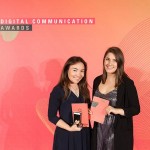The Fair Access Research (FAR) team have been working with students to explore what it means to be a non-traditional student at university through the student voice, using photovoice, a participatory photographic and story technique.
The undergraduates involved in the research, who were from widening participation (WP) backgrounds, became research co-creators. They took photographs to represent their experiences of being a non-traditional student in higher education which they shared within their group then explored and analysed further together. The students then wrote short excerpts relating to their individual photographs.
The stories and photographs were then shared at a workshop as part of the Economic and Social Research Council (ESRC) Festival of Social Science held at BU. Academics and WP practitioners from a variety of different universities attended the workshop to interpret and explore the impact of the students’ stories. Participants engaged in co-creation, listening to students’ voices, learning from their stories, hearing about the photovoice research method and working together to develop practical responses to some of the challenges which the stories presented.
The themes which emerged through an analysis of the research data include the concepts of transition, connectedness and the journey. The images and associated stories told by the students were then shared with a group of BU media students who created the video montage above.
One of the central tenets of the photovoice method is that the participatory approach is used to inform policymakers so that meaningful policy changes can be shaped in unison with the lived experiences of the communities the policies are intended to serve. Listening to students’ voices and hearing students’ own stories of their lived experiences of university can help ensure that policies are developed and implemented that work with the lives and needs of non-traditional students.
The video has been posted on the ESRC website and on the BU YouTube channel
Part of the ‘Experience’ theme, one of five themes in the Fair Access Research project.
 Are you Slacktivist? – read story of student-academic co-creation journey
Are you Slacktivist? – read story of student-academic co-creation journey










 3C Event: Research Culture, Community & Cookies – Tuesday 13 January 10-11am
3C Event: Research Culture, Community & Cookies – Tuesday 13 January 10-11am Dr. Chloe Casey on Sky News
Dr. Chloe Casey on Sky News Final Bournemouth University publication of 2025
Final Bournemouth University publication of 2025 On Christmas Day in the Morning…
On Christmas Day in the Morning… New Nepal scoping review on maternal & neonatal health
New Nepal scoping review on maternal & neonatal health ECR Funding Open Call: Research Culture & Community Grant – Application Deadline Friday 12 December
ECR Funding Open Call: Research Culture & Community Grant – Application Deadline Friday 12 December MSCA Postdoctoral Fellowships 2025 Call
MSCA Postdoctoral Fellowships 2025 Call ERC Advanced Grant 2025 Webinar
ERC Advanced Grant 2025 Webinar Horizon Europe Work Programme 2025 Published
Horizon Europe Work Programme 2025 Published Update on UKRO services
Update on UKRO services European research project exploring use of ‘virtual twins’ to better manage metabolic associated fatty liver disease
European research project exploring use of ‘virtual twins’ to better manage metabolic associated fatty liver disease